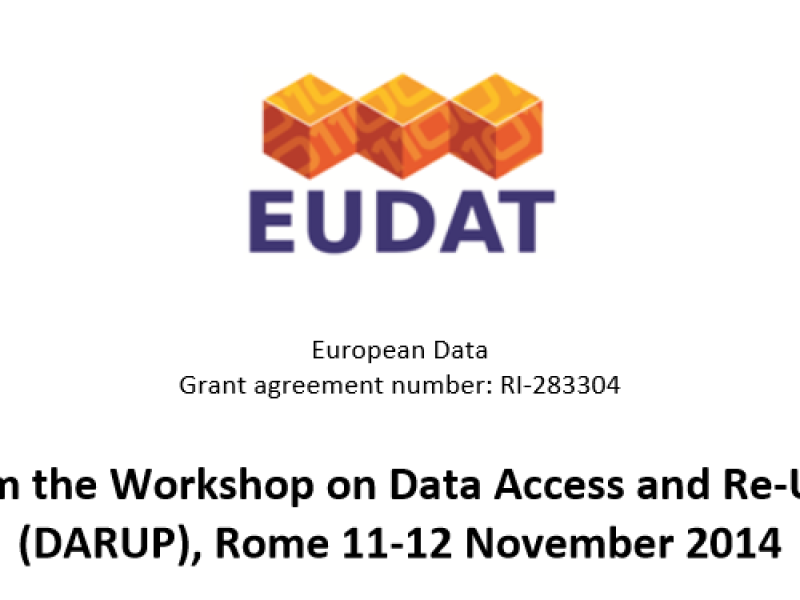
Data Access and Reuse Policies (DARUP) is an important area for a number of reasons. Policies must be made clear to potential users of data infrastructures, both the “data providers” – who need to know how their data will be made accessible and who will be able to access it – and the “data consumers” – who need to know about access or reuse restrictions before starting work with any of the data. Data access and reuse policies within communities must also be understood by e-Infrastructure providers so that they can provide adequate resources and tools to handle the data. It is vital for data infrastructures like EUDAT, which deal with data coming from multiple communities, to determine a common approach on this issue and to specify principles regarding data access and reuse within their own infrastructures.
Recently, EUDAT organised its second DARUP Workshop bringing a broad set of participants from funding agencies, research communities and e-Infrastructure providers to analyse the progress against the action plan set up in 2013.
The Workshop concluded that the DARUP Working Group established by EUDAT was doing a very good job in identifying key areas of importance to users and progressing relevant actions. Priorities for the immediate future included building trust and driving interoperability not only between services but between licences as well; effort would be well spent on developing a manual for data management capturing the best practise from the last twenty years.
